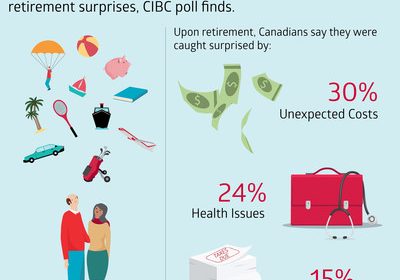- Stats: 1724 1
- Author: Linda
- Posted: November 10, 2021
- Category: Retirement
Canadians Resilient and Optimistic About Retirement Despite Inflation and Pandemic
Fidelity Investments Canada ULC, released the 2021 Fidelity Retirement Report. In its 16th year, this report focuses on both longstanding and emerging factors affecting Canadians’ retirement planning.
“Change is the big story in this year’s report. The global health crisis and the cost of goods and services going up are influencing how Canadians envision their retirement, what they value and are worried about, the timing of retirement and so much more,” said Peter Bowen, Vice President, Tax and Retirement Research. “Another significant story is resilience. We found that Canadians who work with a professional financial advisor feel optimistic and better prepared for what’s ahead.”
Overall, the 2021 Fidelity Retirement Report shows some interesting trends across Canada. While many of the themes are consistent in the different regions, a few regions stand out on the theme of resilience. At 71%, pre-retirees in Quebec have the most positive outlook on retirement, compared to 62% in B.C, which was the lowest among all regions. Only 52% of pre-retirees in Quebec are worried about the rising cost of living impacting their retirement, making them the most resilient in the way they feel about inflation.
Get right up to the minute updates and insights from Fidelity
For Canadians interested in learning more about the latest changing retirement trends and what steps they can take to be more resilient, Peter Bowen and Michelle Munro, Director, Tax and Retirement Research, will be providing their insights on this year’s results across all Fidelity platforms, including: The Upside live webcasts, FidelityConnectspodcasts, written commentary on Fidelity Canada social media channels, and on Fidelity.ca.
Key findings:
- COVID-19 changes retirement vision -73% of retirees and over half of pre-retirees indicated COVID-19 has changed the way they live (expect to live) their life in retirement. It remains to be seen how long lasting these changes will stay in place as more communities open up across Canada.
- Health care planning more important – 60% of pre-retirees with a written financial plan have included a budget for health care costs for retirement. However, there is a big opportunity. Only 25% of pre-retirees have a written financial plan, meaning there are still many Canadians who may not have considered health care in their plans.
- Inflation now top of mind with regional variances – Retirees are paying attention to inflation and how it might affect their current situation as well as their future plans and spending possibilities. More than half (56%) of surveyed pre-retirees are considering how the rising cost of living may affect their retirement plans. Interestingly, Canadians from B.C. approaching retirement are most worried about inflation (64%) while the same in Quebec are less concerned (52%)
- Written financial plan a driver of confidence and optimism – 85% of pre-retirees with a written financial plan feel more prepared versus 46% of pre-retirees without a plan. 91% of pre-retirees with a plan have a positive outlook.
- Value of advice – 86% of Canadians with a written financial plan worked with financial advisors, who remain the most popular and trusted source of advice.
“While themes like the pandemic, inflation and cost of living can dominate the news headlines, our research shows that regardless of the headwinds Canadians are facing, when you work with a professional financial advisor, you are more confident, prepared and less stressed about retirement planning,” said Bowen.
For more information about the 2021 Fidelity Retirement Report, visit www.fidelity.ca/retirement.



